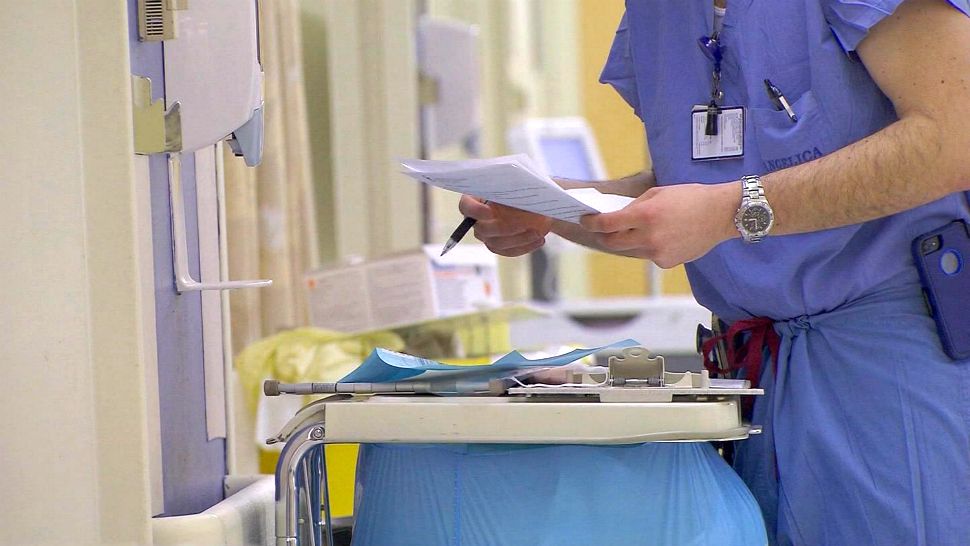ORLANDO, Fla. — A new study finds Hispanics in the U.S. are facing language and cultural barriers when seeking health care.
- Hispanic adults face language, cultural barriers in health care
- AP study found 6 in 10 have had difficult time communicating
"I usually search online, look for reviews. I do call and ask if they speak Spanish. Not that the doctor needs to speak Spanish, but I feel it’s easier to communicate my concerns, or my worries or ask questions,” said Cristina Terrada while she waited for her weekly checkup at her OB-GYN.
Terrada has been very meticulous in picking her doctors, especially when she's looking for someone to deliver her first baby girl.
She is originally from Puerto Rico and has been in the U.S. for more than four years. She grew up bilingual and still, she feels more at ease when seeing a Hispanic doctor.
Terrada’s not alone. According to a recent study by the Associated Press, nearly six in 10 Hispanic adults have had a difficult time communicating with a health care provider, and it's not just because of the language -- culture matters too.
"There some things that we do where I come from that doctors here in the states wouldn't understand. For example, home remedies and things like that, that may seem crazy to them, but for us it works,” Terrada said.
Orlando-based OB-GYN Dr. Luis Tobón, said this doesn't just affect Hispanics -- his office sees people from all over the world and has had to learn about all different cultures.
"Many cultures we have to talk more with the husband, more than with the patient, and even some cultures they don't shake hands, some cultures don't allow the husband in the rooms,” Tobón said.
Medical offices should pay close attention to this trend, especially in growing markets such as Orlando that’s seen a growth in minority groups, especially Hispanics.
Dr. Tobon said a physician’s priority is finding the right care for the patient, and that means getting to know them.
"In order to get better diagnosis, we have to understand first what the patient has, listen to the patient and not see patients as if they’re all the same, they’re different," he said.
For Terrada, who’s expecting her daughter in less than a month, it's about building that relationship with the person who's making sure her health and her baby's health are okay.
“I feel like it’s almost that I want to have the trust that I have in my family. I need that connection with my doctor,” she said.
Bigger hospitals have invested in technology such as tablets to help patients with translations. Many medical offices have also focused on hiring bilingual staff.



